
 Flash News
Flash News
Fire breaks out in a building in Astir
KAS rejected the request for a recount of votes, Alimehmeti sues the CEC in the Electoral College
Mahmut Orhan brings a unique experience with Curious X
Six police officers are sent to court, they did not impose fines even though they saw violations
Murder of Martin Cani/ 5 minors called to testify in Court, perpetrator denies charges
48% of voters live abroad; The fate of the elections was in the hands of pensioners
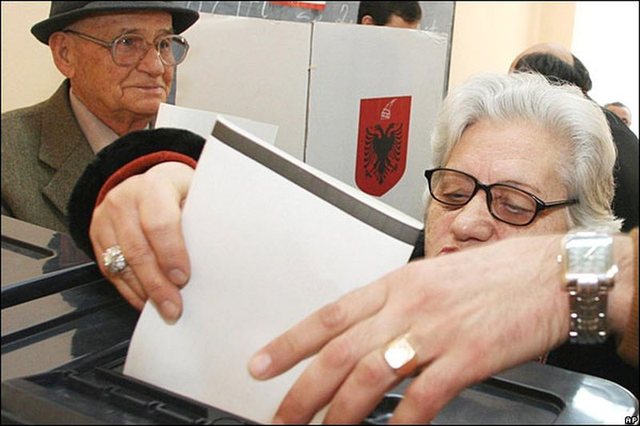
Nearly half of the electorate (47.7%) is reported to live abroad, creating a large gap between the formal voter list and the resident population that actually receives public services.
On the one hand, the Civil Status Registry counts 3.71 million citizens with the right to vote, according to official data from the CEC, and on the other hand, the 2023 census counted only 1.94 million resident Albanians over 18 years old living in the country. The difference of 1.77 million people shows that 48% of the voter list lives outside Albania.
The gap between Albanians with the right to vote and the actual population indicates drastic changes in the country's demographics, also affecting the electoral dynamics.
Considering the latest CEC data that 42.2% of voters participated in the elections, this translates into over 1.56 million Albanians having exercised their right to vote. The number of participants is 80.6% of the resident population with the right to vote in Albania and 42.2% of the total Albanians with the right to vote.
As the number of voters on the lists increases, the number of participants in the elections is decreasing, contributing to the increase in fictitious expenses to manage the election process in the country.
The state prints sheets, distributes funds, and opens centers for a list of 1.8 million people who are physically absent. The administrative and material costs are almost double the real need.
One in three voters over 60
Considering the 2023 census data, more than one in three residents with voting rights is over 60 years old. The population over 60 years old was 32.4 percent of the voting population. In the future, this group of voters will exert more pressure on pension policies, health and long-term care.
The economically active electorate (30-60 years old) accounted for half of the voters (49%) living in the country.
The 18-29 age group accounted for only 17.8% of the voting population and remains in the minority, even though political discourse often addresses the “youth vote.”
Without an updated registry and clear voting mechanisms for the diaspora, official statistics continue to produce arithmetical frauds that affect budgeting, social policies, and the very legitimacy of electoral processes.
Considering that young people have only participated in 35 percent of the voting in the past, it is expected that the youth vote will constitute about 6% of the total votes this year.
A 61-year-old has almost 3.5 times more electoral weight than a 22-year-old, causing parties to direct fewer electoral resources towards young people.
Last year's polls showed that about 54% of young people are not interested in politics.
So every lek spent on pensioners is politically more effective than one lek on youth policies.
This year, about 191,000 Albanians abroad voted for the first time by mail on May 11, out of a total of 245,000 who were registered. If diaspora registration is expanded, the weight of young people could increase.
With only 17.8% of voters, young people are small in electoral mathematics. This explains why the 2025 programs look more like a “pension + bonus” scheme than a “vision 2035”./ B.Hoxha
Latest news


Fire breaks out in a building in Astir
2025-06-02 20:22:46



Two women threaten the Saranda prosecutor in her office
2025-06-02 19:09:20
Etna wakes up again, the most active volcano in Europe erupts
2025-06-02 19:00:36




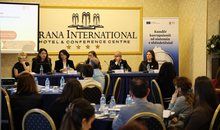


Fire reactivates in Darëzeza forest, firefighting efforts impossible
2025-06-02 17:28:29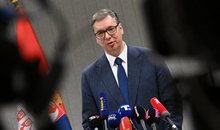

Cultivating cannabis on a plot, 35-year-old arrested in Mirdita
2025-06-02 16:59:27

Switzerland/ Albanian caught with drugs worth over 1 million euros
2025-06-02 16:50:38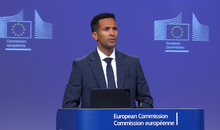
Kosovo-Serbia dialogue meetings resume in Brussels
2025-06-02 16:32:44
The VPN Era in Albania: How the TikTok Ban is "Failing", Video Views Increase
2025-06-02 16:26:36
Mahmut Orhan brings a unique experience with Curious X
2025-06-02 16:19:55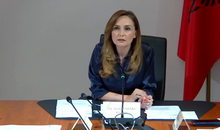

Businesses "forgot" to pay for elections, liabilities reached 4.7 billion lek
2025-06-02 15:50:27
Photo/ Caught with cocaine, Albanian arrested in Britain
2025-06-02 15:31:12


He violently opposed police officers, 39-year-old arrested in Vlora
2025-06-02 15:04:28


DP demands Rusmal's expulsion from KAS, Logu: It is biased, Begaj's advisor
2025-06-02 14:37:24
Anemia is increasing in the population
2025-06-02 14:32:18


Fires in Darëzezë reactivate, wind spreads flames
2025-06-02 13:57:33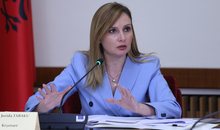

Traffic jams and over 14 thousand fines, Traffic Police take stock of the week
2025-06-02 13:40:51
Eurosceptic Nawrocki wins presidential election in Poland
2025-06-02 13:33:27

Hysaj: Against Serbia with calm and courage, this match is for national pride
2025-06-02 13:14:41

Bulgaria defies chaos and continues on path to euro
2025-06-02 12:53:28


Elected MP, Tedi Blushi resigns from Tirana Municipal Council
2025-06-02 12:29:36

Murder in Tale, the author of the execution of Pjetër Kazaj is identified
2025-06-02 12:07:27


'Justice for Hamid': Activists protest against Gjadri camp
2025-06-02 11:41:26
The draw is made, judge Elsa Ulliri will judge the "Partizani" case
2025-06-02 11:26:52
The 25th attempt to constitute the Kosovo Assembly also fails
2025-06-02 11:12:29





Coefficients, how calculations are made for newly retired people
2025-06-02 10:11:17
Two vehicles burned in Maliq, arson suspected
2025-06-02 10:00:03

Logu: They deny us transparency about the May 11th farce!
2025-06-02 09:44:46
Ten ways to feel energized if even coffee doesn't work for you
2025-06-02 09:33:49
I shpallur në kërkim për llogari të Kosovës, arrestohet i riu nga Tepelena
2025-06-02 09:24:39
African heat wave begins in Albania, meteorology warns of dry summer
2025-06-02 09:11:48
Foreign exchange, how much foreign currencies are sold and bought today
2025-06-02 09:02:45
Truck catches fire on 'Rruga e Kombit', driver escapes
2025-06-02 08:56:21
On the May 11 electoral farce in Albania
2025-06-02 08:47:54
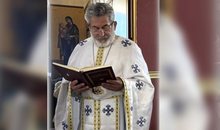
Priest Kristaq Vaso dies after falling from church roof in Korça
2025-06-02 08:32:29

Horoscope, what do the stars have in store for you today?
2025-06-02 08:10:47
Stable weather across the country, weather forecast
2025-06-02 07:59:25
Morning Post/ In 2 lines: What mattered yesterday in Albania
2025-06-02 07:46:43
Official, Juventus appoints Damien Comolli as general director
2025-06-01 21:57:45
"Russia could attack NATO in the next 4 years," warns German defense chief
2025-06-01 21:34:42
Kuçana: Opposition candidates have been threatened by "Rama's gangs in Shkozet"
2025-06-01 21:11:15


15-year-old injured in shooting at Ali Demi's pizzeria, details from police
2025-06-01 19:51:19

Russia accuses Ukraine of 'terrorist attack' on air bases
2025-06-01 18:57:24
A hospital in Hamburg, Germany, catches fire, killing three patients
2025-06-01 18:32:28
Nesho: Rama's autocratic regime has not allowed free elections to take place
2025-06-01 18:10:23
Moroccan immigrant's suicide, activist: There are inhumane conditions in Gjadra
2025-06-01 17:49:32
World Bank Report, PL: Confirms that the majority of Albanians live in poverty
2025-06-01 17:23:56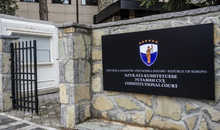

31 dead after Israeli attack near Gaza aid center
2025-06-01 16:40:30
At least 150 dead in Nigeria floods
2025-06-01 16:14:26
Flames engulf the Darëzeza forest massif in Fier
2025-06-01 15:56:41

SHBA-ja i dërgon Iranit një propozim për marrëveshje bërthamore
2025-06-01 14:54:11


Moroccan immigrant commits suicide, activists protest in front of Gjadri camp
2025-06-01 13:48:17
PSG victory celebrations turn into tragedy, two dead, over 500 arrested
2025-06-01 13:26:33

Kosovo-Albania arms trafficking, Tirana Court leaves 8 arrested in prison
2025-06-01 12:41:11
Foreign worker dies at work, engineer of construction firm arrested in Tirana
2025-06-01 12:20:27
Car hits motorbike, 25-year-old dies in Bilisht
2025-06-01 11:56:56
